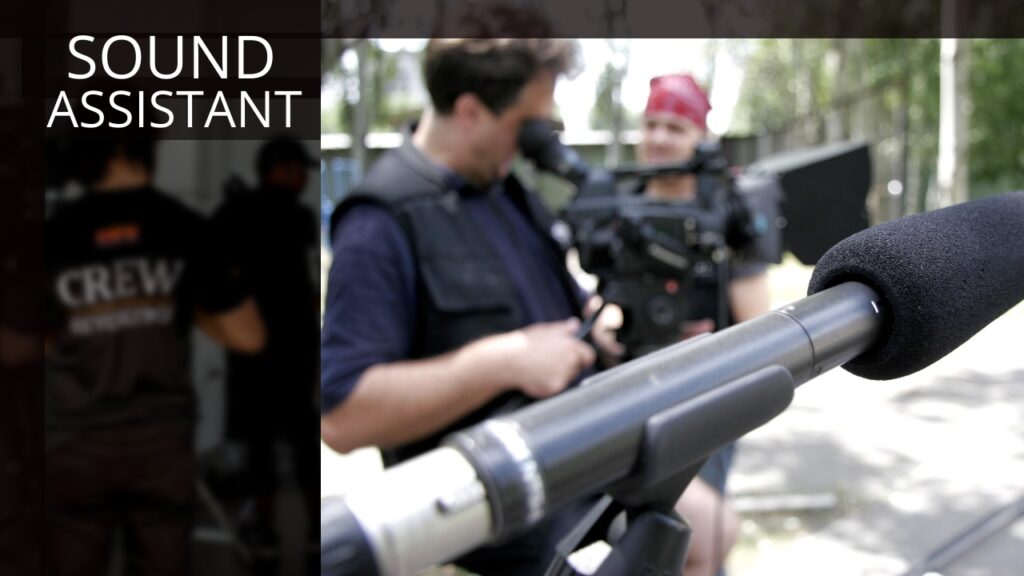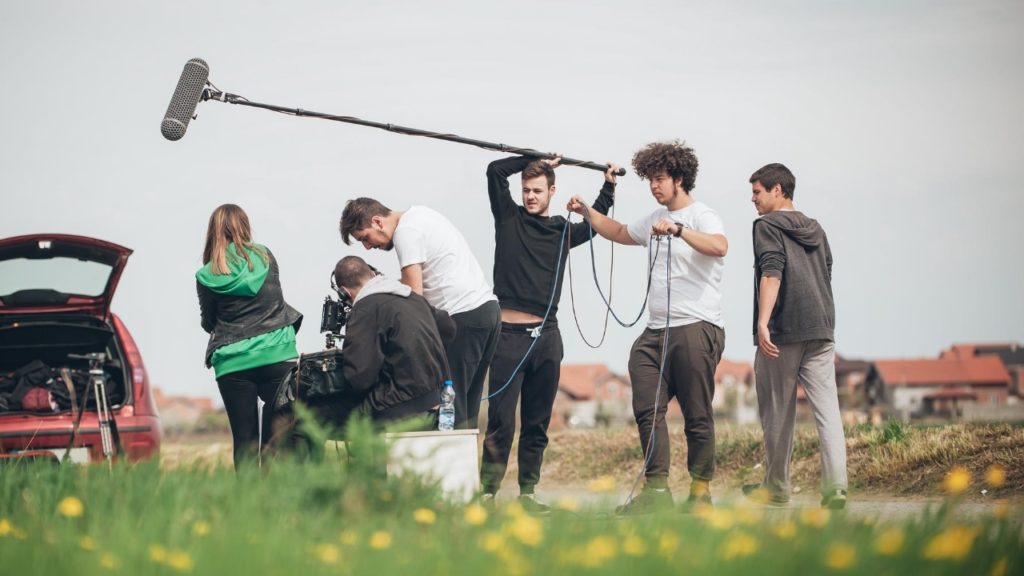
What is a Sound Assistant and What is Their Role on Set?
The Sound Assistant is also otherwise known as the Sound Trainee. They make up the third members of the Production Sound Crew providing support to the Production Sound Mixer and the Boom Operator. The Sound Assistant has the responsibility of checking stock, microphones and batteries to ensure all are in working condition and ensuring that the sound department is running as smoothly as possible.
A Sound Assistant may be needed on certain large scale productions when a second Boom Operator is needed. Here they will record off-camera lines of dialogue that take place when characters that are not appearing on the screen are speaking. The Sound Assistant is generally hired by the Production Sound Mixer and works on a freelance basis. They work on film productions and on television sets unless they find their role with a Production Sound Mixer that works solely on feature films.

Working hours, like much of the hours for those on the set crew, are long and demanding for Sound Assistants. Extended time away from home is a common requirement for members of the sound crew as on-location filming often takes place away from the studio.
Sound Assistant Job Requirements
The Sound Assistant comes into work on the first day of the shoot to provide support to the rest of the Sound Crew. They generally arrive at least 30 minutes before call time to ensure that the Sound van is unloaded and that all equipment has been properly checked and prepared for the shoot. Working with the Boom Operator, the Sound Assistant will process through all sound equipment set up to ensure it is working efficiently.
Sound Assistants must pay close attention to the positioning of microphones and other sound equipment during the Director’s rehearsals. They also work closely with Boom Operators to ensure proper planning of difficult shots.

Sound Assistants think ahead and must recognize needs on set in advance of the shoot. They may lay carpet to prevent unwanted noise in the studio or on the location floor. They also provide headphones with audio receivers for the crew members and guests on set as needed. Sound Assistants are responsible for ensuring that all of this equipment is in working order and that batteries are charged. They also make sure that unwanted noise from talking, coughing, or off-set traffic is canceled out quickly and efficiently before it interrupts the shoot and causes production to fall off schedule.
Other Responsibilities
Working closely with the Production Sound Mixer, the Sound Assistant will attach microphones to actor’s clothing as needed and they may interact with the Boom Operator to place cables throughout the studio floor so that sound recording devices are in appropriate locations. At the end of the shooting day, the Sound Assistant is responsible for packaging and labeling all sound discs with appropriate sound rushes to be sent to editing. They work until the end of the shoot when they will ensure that all equipment is properly stored away for transport back.
Sound Assistants may operate a second boom on large scale productions where such is necessary. In addition to the above listed tasks, the Sound Trainee works as the go-to for coffee and tea production for the sound crew, and they help with miscellaneous tasks such as cleanup and packaging of all sound equipment on set. Most Sound trainees will shadow the Production Sound Mixer to learn the ropes so that they can ultimately take on a similar role once they have gained valuable work experience.
Sound Assistant Skills
The Sound Assistant must possess great communication skills and a desire to help others as they work closely with members of the production sound crew. Attention to detail is necessary to ensure equipment is properly handled, maintained and in good service. They must have reliable working knowledge of microphones and sound equipment in order to help the rest of the crew on set. Additional skills include:
- People skills
- Aural skills
- Agility
- Managerial skills
- Team skills
- Working knowledge of health and safety requirements on set.
The Crew Film Crafts has a great video showing how a sound department operates:



